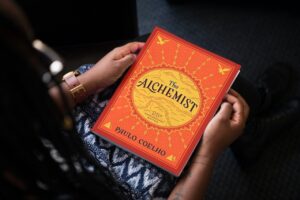In this article, we present you with a selection of the best books by Umberto Eco. But before we do, we’ll tell you a little about the life of this renowned Italian philosopher, professor, and writer.
Umberto Eco was born in Alessandria, Piedmont in 1932. He was a full professor of Semiotics at the University of Bologna and director of the School of Humanistic Studies at the same institution. He carried out his teaching activities at universities in Turin, Florence, and Milan, and also taught courses at various universities in the United States and Latin America. He died on February 19, 2016.
Umberto Eco Novels
The Name of the Rose
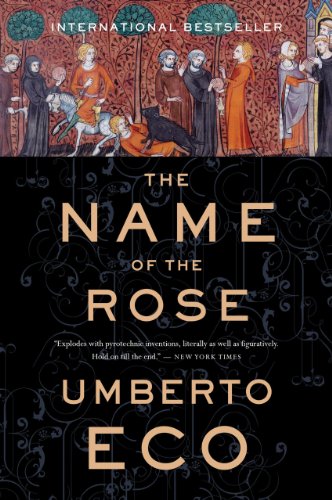
It is the year 1327. The Benedictines at a wealthy Italian abbey are accused of heresy, and Brother William of Baskerville is sent to investigate. However, when his mission is overshadowed by seven strange deaths, Brother William transforms into a detective. Armed with the logic of Aristotle, the theology of Aquinas, and the empirical knowledge of Roger Bacon, he sharpens his skills with a sense of humor and an insatiable curiosity. As he collects evidence, deciphers cryptic symbols and encrypted manuscripts, he delves into the eerie maze of the abbey where «the most intriguing events occur at night.
Foucault’s Pendulum
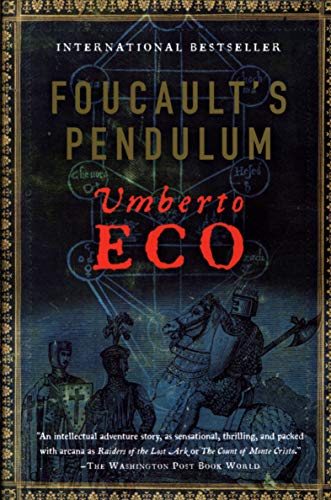
Tired of their mundane work, three book editors from Milan come up with a grand scheme to link the legendary Knights Templar with secret societies throughout history. As they become captivated by their own creation, they devise a map pointing to a location in Paris, France, where all the powers of the earth can be controlled – Foucault’s Pendulum.
However, their joke takes a sinister turn when various occult groups, including Satanists, catch wind of the plan and go to extreme lengths, including murder, to gain control of the earth. In this intricate and thrilling novel, Umberto Eco masterfully brings together diverse characters and weaves them into a thought-provoking and entertaining story.
The Island of the Day Before
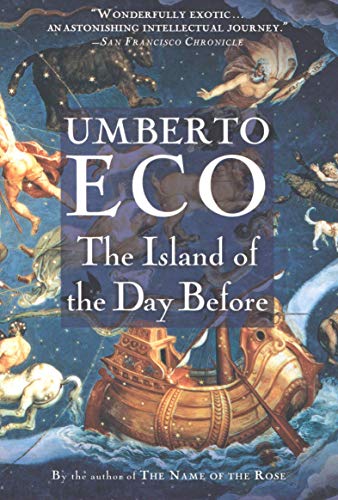
The year is 1643 and Roberto della Griva finds himself shipwrecked on a strange ship in the South Pacific. After being swept off of the Amaryllis, he finds himself aboard the Daphne, anchored in a beautiful bay on a mysterious island. To his surprise, the ship is fully stocked with provisions, but the crew is nowhere to be found.
As Roberto explores the different rooms on the ship, he reflects on various moments from his life, including Ferrante, his imaginary evil brother, the siege of Casale, and lessons he received on fencing, love letters, and blasphemy.
This intellectually stimulating and dramatically intriguing novel by Umberto Eco follows Roberto as he searches for love and purpose, and an elderly Jesuit who has studied the secrets of longitudes, the four moons of Jupiter, and the Flood.
Baudolino
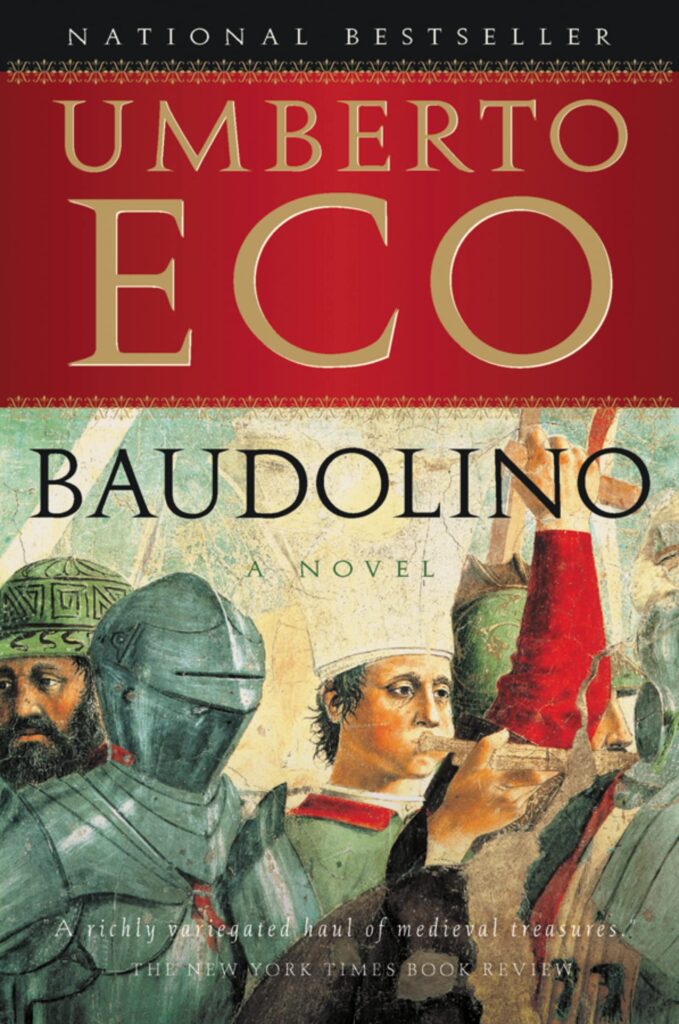
In the year 1204, the city of Constantinople is under attack by the knights of the Fourth Crusade. In the midst of the chaos, Baudolino saves a historian and court official from certain death at the hands of the crusading warriors and proceeds to recount the fantastical story of his life to the official.
Baudolino was born as a simple peasant in northern Italy and possesses two major talents – a facility for learning languages and a skill for storytelling. As a boy, he is adopted by a foreign commander who sends him to study at the university in Paris. There, he makes a group of adventurous friends and together they embark on a quest to find the legendary priest-king Prester John, who is said to rule over a vast kingdom in the East.
The kingdom they search for is a fantastical land filled with strange creatures and otherworldly wonders, such as eunuchs, unicorns, and beautiful maidens. Through Baudolino’s thrilling tale of adventure, Umberto Eco showcases his exceptional storytelling abilities and captivates his audience with dazzling digressions, outrageous tricks, and extraordinary emotions. This novel is a testament to Eco’s brilliance as a storyteller and provides a reflective commentary on our modern age.
The Misterious Flame of Queen Loana
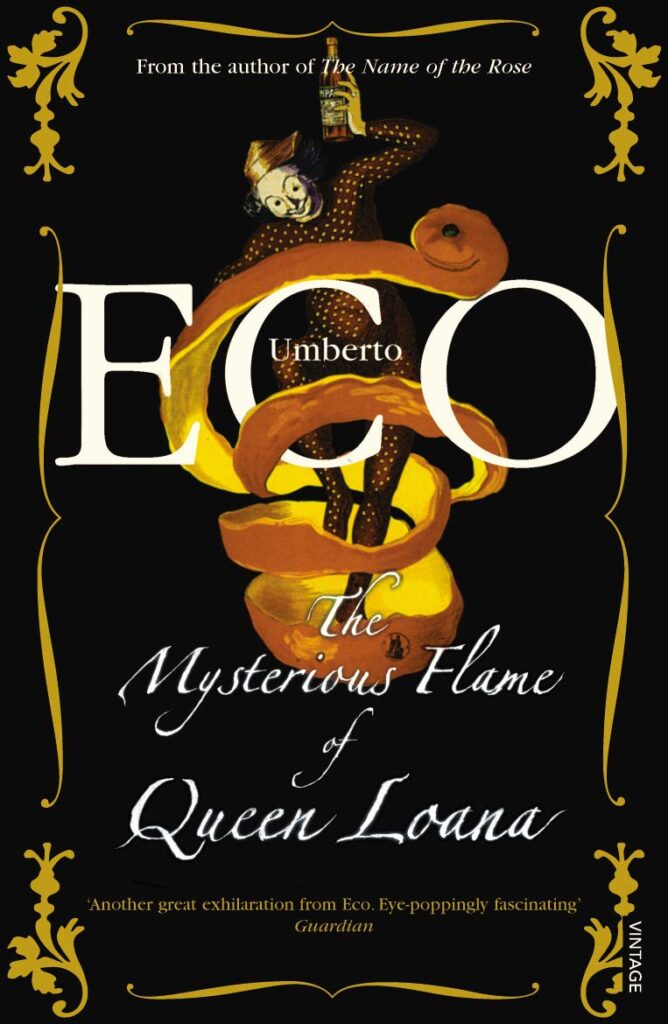
Internationally best-selling author Umberto Eco is renowned for his masterful writing style and captivating novels, including The Name of the Rose and Baudolino, which have been enjoyed by millions of readers around the world. With The Mysterious Flame of Queen Loana, Eco creates another of his signature, ambitious and breathtaking stories.
When book dealer Yambo suffers from amnesia, he loses all sense of his identity, but retains memories of all the books, poems, songs, and movies he has ever encountered. In an effort to regain his identity, he returns to his family home and sifts through old letters, photographs, and keepsakes stored in the attic. As Yambo navigates through a labyrinth of thoughts, he desperately tries to retrieve the one memory that may be most important to him – that of Lila Saba, his first love.
Filled with vivid and sometimes wondrous imagery, The Mysterious Flame of Queen Loana adds to Eco’s literary legacy and is a book steeped in nostalgia.
The Prague Cemetery
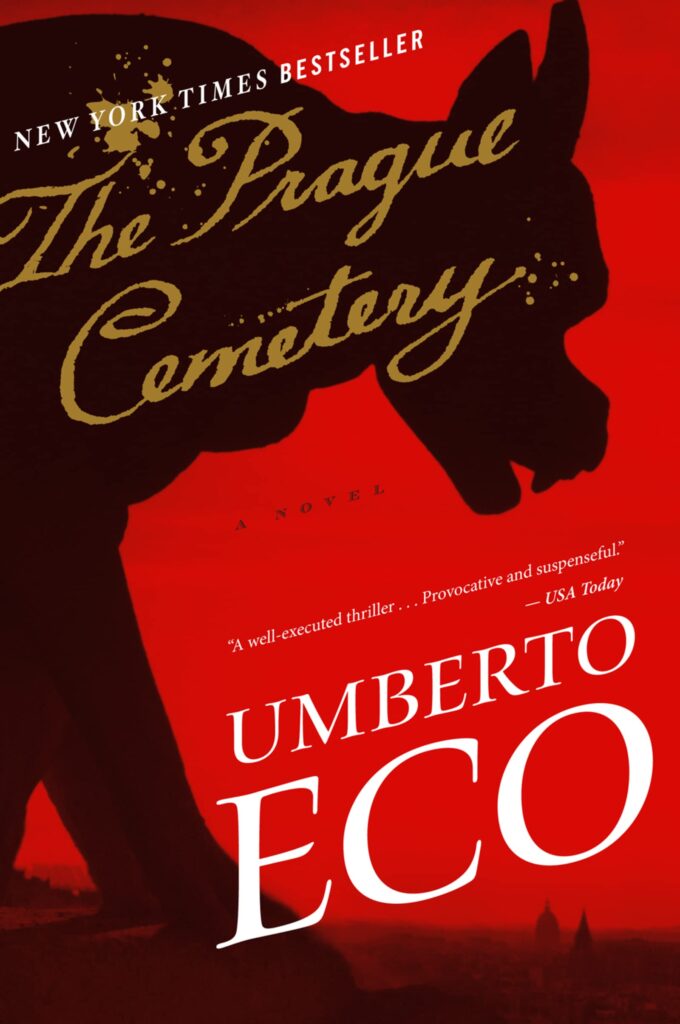
The Prague Cemetery, a historical novel by international best-selling and award-winning author Umberto Eco, transports readers to 19th century Europe where mystery and intrigue are commonplace. From Turin to Prague to Paris, the continent is teeming with horrific events and dark secrets. The Jesuits and Freemasons engage in dangerous power struggles, while Italian republicans commit heinous crimes and French criminals carry out bombings and participate in Black Masses.
In this world, every country has its own intelligence agency, perpetrating forgeries, plots, and massacres as conspiracies dictate the course of history. The unification of Italy, the Paris Commune, the Dreyfus Affair, and The Protocols of the Elders of Zion are just a few of the events that lead to chaos and social unrest.
But what if behind these many conspiracies, both real and imagined, lies just one person? The Prague Cemetery is a masterful work that explores the concept of a lone man controlling the fate of Europe.
Numero Zero
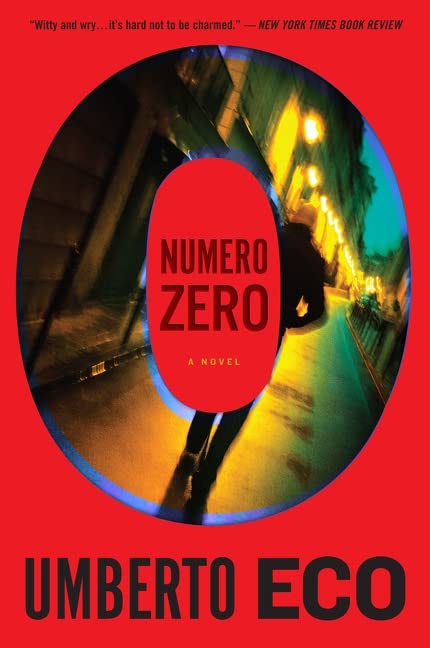
The globally renowned author of The Name of the Rose and The Prague Cemetery, Umberto Eco, brings us yet another intriguing novel exploring the murky world of media, politics, and murder. In The Mysterious Death of Mussolini, Eco delves into the controversial circumstances surrounding the death of Mussolini and his mistress in 1945.
In 1992, Milan, a struggling writer named Colonna is offered a lucrative opportunity to ghostwrite a book about a new newspaper backed by a powerful media magnate. As he gets to know the team, he discovers their editor’s paranoid theory that Mussolini’s death was staged as part of a larger Fascist plot. This explosive theory is the scoop the newspaper needs, and Colonna finds himself embroiled in a web of media hoaxes, mafia connections, CIA and Pentagon involvement, blackmail, and murder.
Eco expertly weaves together the threads of history, media, and politics to create a gripping tale that will have readers turning the pages as the story’s thrilling plot unfolds. With themes that reflect the major events and forces that have shaped Italy from World War II to the present day, The Mysterious Death of Mussolini is a captivating and thought-provoking novel.
Essays by Umberto Eco
How to Write a Thesis
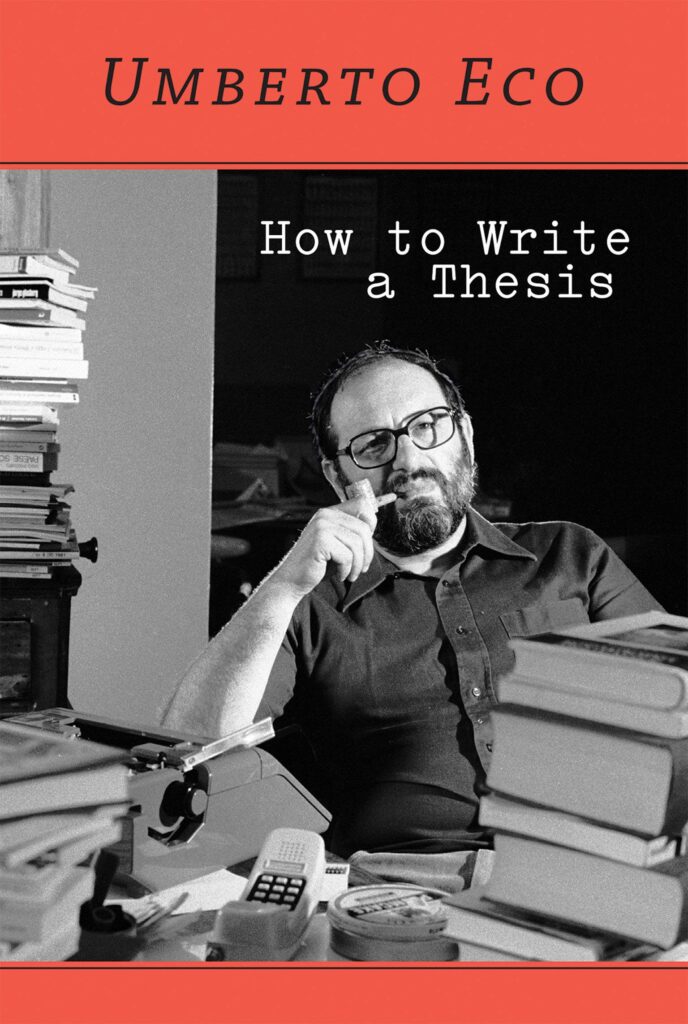
Before Umberto Eco became a bestselling author with «The Name of the Rose,» he was already a highly regarded intellectual and academic in Italy, known for his influential works on semiotics. In 1977, Eco wrote «How to Write a Thesis,» a guide for his students on the process of researching and writing a thesis. This little book has since become a classic, with 23 editions in Italy and translations into 17 languages.
However, «How to Write a Thesis» is not your typical writing manual. Eco’s approach is unique and entertaining, offering practical advice while also contemplating the larger purpose of writing a thesis. His writing style is engaging, filled with opinions and humor, and even a bit irreverent at times. Eco teaches students how to avoid «thesis neurosis» and provides answers to important questions like «Must You Read Books?»
Although written before the internet, Eco’s advice on critical thinking and information curation is still relevant for students today who may struggle with handling vast amounts of data. «How to Write a Thesis» is a must-read for students, teachers, writers, and fans of Eco’s work, and would sit nicely on the bookshelves next to classics such as Strunk and White and «The Name of the Rose.»
Table of Contents:
- The Definition and Purpose of a Thesis
- Choosing the Topic
- Conducting Research
- The Work Plan and the Index Cards
- Writing the Thesis
- The Final Draft.
Confessions of a Young Novelist
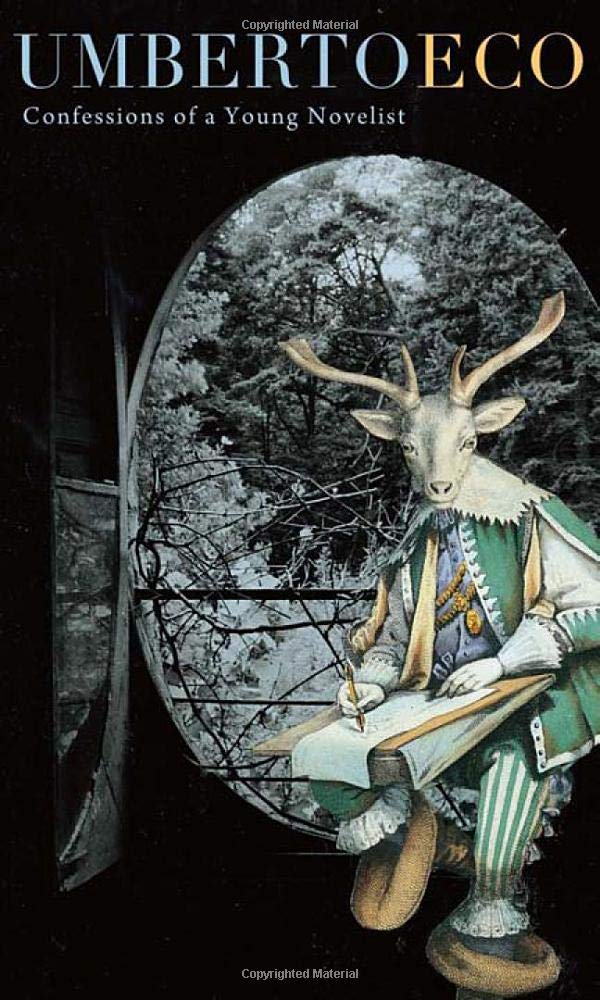
Umberto Eco published his first novel, The Name of the Rose, in 1980, when he was nearly fifty. In these “confessions,” the author looks back on his long career as a theorist and his more recent work as a novelist, and explores their fruitful conjunction.
He begins by exploring the boundary between fiction and nonfiction, playfully, seriously, brilliantly roaming across this frontier. Good nonfiction, he believes, is crafted like a whodunnit, and a skilled novelist builds precisely detailed worlds through observation and research. Taking us on a tour of his own creative method, Eco recalls how he designed his fictional realms. He began with specific images, made choices of period, location, and voice, composed stories that would appeal to both sophisticated and popular readers. The blending of the real and the fictive extends to the inhabitants of such invented worlds. Why are we moved to tears by a character’s plight? In what sense do Anna Karenina, Gregor Samsa, and Leopold Bloom “exist”?
At once a medievalist, philosopher, and scholar of modern literature, Eco astonishes when he considers the pleasures of enumeration. He shows that the humble list, the potentially endless series, enables us to glimpse the infinite and approach the ineffable. This master of the art of fiction has wise things to impart about the power of words.
Inventing The Enemy
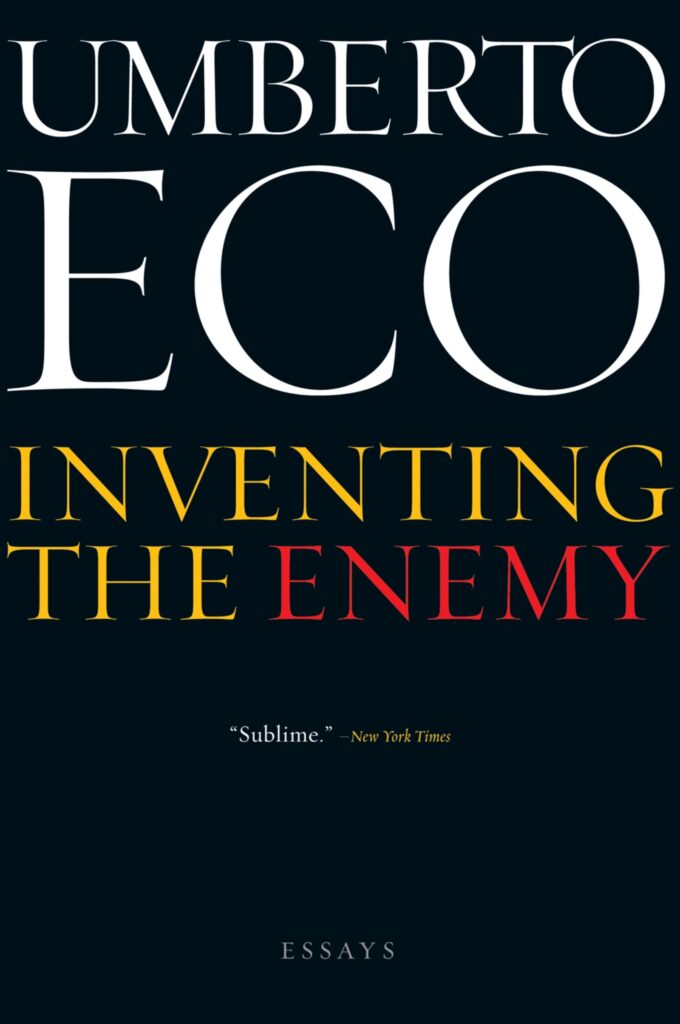
Inventing the Enemy explores the diverse range of subjects that Eco has delved into over the past decade. It encompasses a thorough analysis of the central theme in his novel «The Prague Cemetery», which states that every nation requires an enemy, and if it doesn’t have one, it must fabricate one. The book also delves into Eco’s earlier works, taking readers on a journey through lost territories, mythical lands, and the medieval era.
Eco also expresses his opinions on various topics including a scathing review of James Joyce’s «Ulysses» by fascist journalists in the 1920s and 1930s, a study of Saint Thomas Aquinas’s beliefs about the soul of an unborn child, censorship, violence, and the impact of WikiLeaks.
These essays are a testament to Eco’s passion, intellectual curiosity, and captivating obsession, making him one of the most highly regarded scholars and best-selling authors in the world.
The Book of Legendary Lands
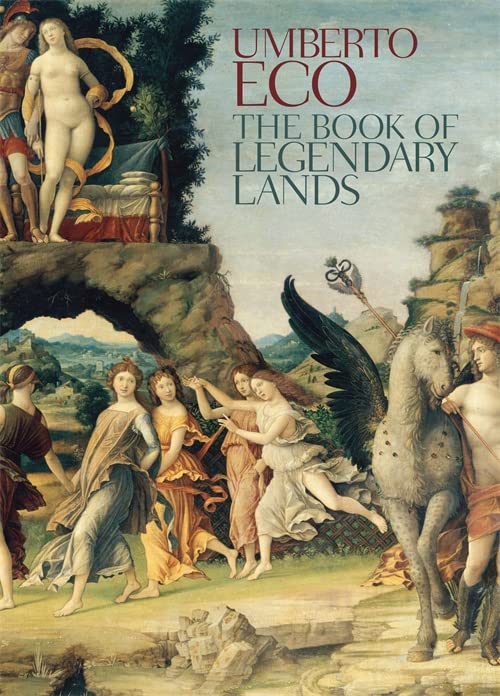
Following in the footsteps of On Beauty, On Ugliness and The Infinity of Lists, Umberto Eco takes us on a mesmerizing and knowledgeable illustrated journey through the renowned places that have captivated and eluded us for centuries.
From the classic poems of Homer to modern science fiction, from Holy Scriptures to contemporary mythology and fairy tales, literature and art are filled with illusory locations that we once believed to be real, and onto which we have projected our desires, ideals, and fears. Umberto Eco guides us through these mythical lands – Atlantis, Thule, Hyperborea, the Earth’s interior, and the Land of Cockaigne – and investigates both utopias and dystopias where our imagination can encounter ideas that are too fantastical or too daunting for the limitations of reality.
In The Book of Legendary Lands, Eco’s text is accompanied by a multitude of meticulously selected works of art and literature, resulting in a beautifully illustrated volume that appeals to a wide audience.
The Aesthetics of Thomas Aquinas
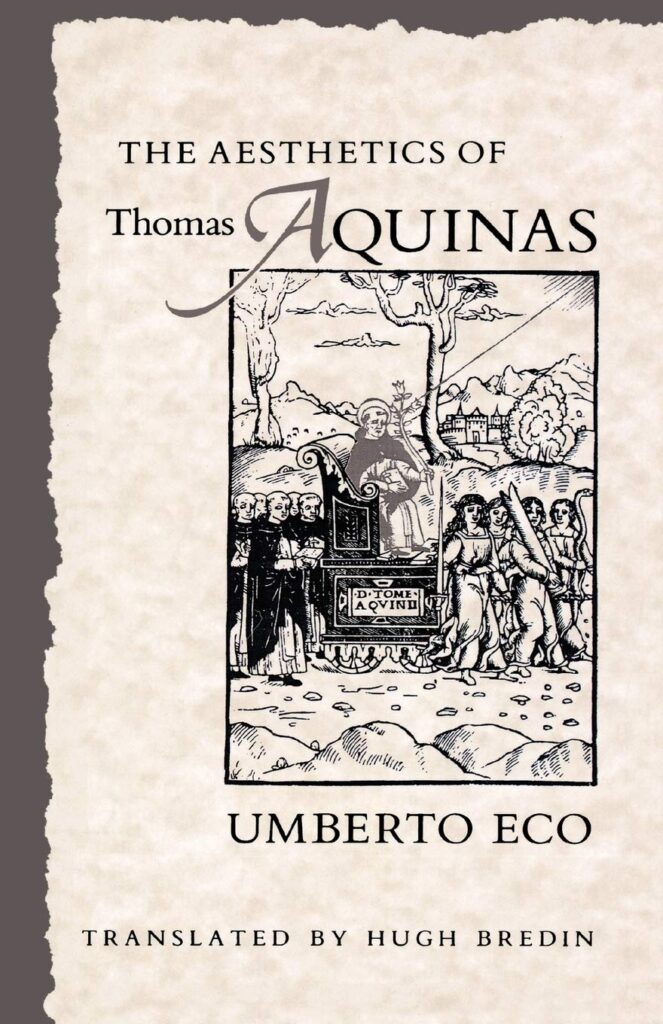
The renowned Italian semiotician and novelist, Umberto Eco, unveils the vast and unexpected intricacy, breadth, and originality of the aesthetic theories propounded by the influential medieval thinker, Thomas Aquinas, previously only recognized as a scholastic theologian. Aquinas drew inspiration from classical ideas and theories of art and beauty, which he transformed and adapted in light of Christian theology and advancements in metaphysics and optics during the 13th century.
Eco sets the scene by providing an overview of the vibrant aesthetic and artistic sensibility that thrived during the medieval era, and then goes on to explore Aquinas’s concept of transcendental beauty, his theory of aesthetic perception, and his three conditions of beauty – integrity, proportion, and clarity – that reemerged centuries later in James Joyce’s works. He delves into Aquinas’s views on art and compares his poetics to Dante’s. In a final chapter added to the second Italian edition, Eco examines how Aquinas’s aesthetics were absorbed and surpassed in late medieval times, and highlights the parallels between Thomistic methodology and contemporary structuralism.
This book is the only comprehensive treatment of Aquinas’s aesthetics in English and will interest philosophers, medievalists, historians, critics, and anyone with a passion for poetics, aesthetics, or the history of ideas.


